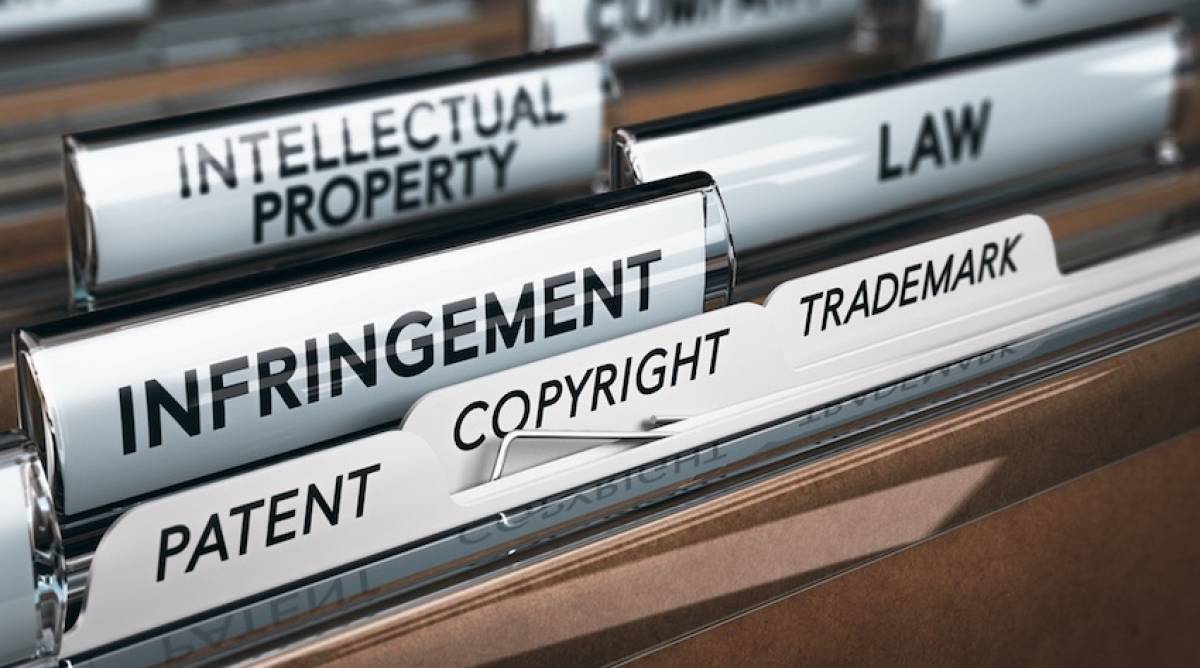What Is Intellectual Property and How Can Businesses Protect It?

Although most businesses have at least some familiarity with trademarks, patents, and infringement, understanding these concepts in more detail can prevent the financial losses and reputational damage that organizations can suffer when their IP is not properly secured.
Owing to the importance of this topic, we feature intellectual property expert Philip Partington of JMW Solicitors who offers a detailed overview of everything you need to know about identifying, registering and defending your business’ IP assets.
Philip also highlights some common pitfalls to avoid, including listing some examples of vulnerable assets that many businesses do not realize can be protected under IP law.
Let’s dive in to understand what intellectual property is and how your business can protect it.
What is intellectual property?
In business terms, intellectual property refers to assets that give value to a business but that are not physically tangible.
Many elements of a brand’s identity are considered intellectual property and are eligible for protection, including company and product names, logos, packaging designs, slogans, jingles, sound effects, and more.
In most cases, these assets will be protected by trademarks. This means that businesses must register for protection in order to defend these IP elements to the full extent of the law.
Trade marks can apply to images, sounds and phrases, but assets must have a unique character that is associated with your business to be eligible for registration.
Inventions are also considered intellectual property in many cases, and businesses must apply for patents to guard these assets against infringement.
A patent application must demonstrate how a product works, and as such, it cannot be used to protect ideas - only specific inventions.
There are other types of intellectual property, some of which benefit from protection automatically from the moment they are created. These include:
- Written works, whether fiction or nonfiction
- Plays, painting, and other works of artistic expression
- Music or audio recordings
- Films, television programs and other broadcasts, and
- Layouts of published pieces of writing.
Copyright protection is granted to the creator of an eligible work at the moment it is created - although, if someone creates a work during the course of their employment, their employer is considered to be the copyright holder.
You should speak to an experienced intellectual property solicitor to learn which of your brand elements qualify for registered trade mark status, or for advice on developing assets that are suitably unique.
Why you need to protect your intellectual property
Any intellectual property assets may be targets for competitors to copy, but especially those for which you must register. This is because trademarks secure key elements of an organization’s brand identity, which other businesses may be eager to replicate.
Meanwhile, patents defend innovative products, which any competitors looking to recreate your success will surely try to imitate.
By infringing on your IP, other organizations can mislead customers and misrepresent their products or services as being associated with yours. As a result, you may lose customers or suffer reputational damage due to the actions of another company, and these outcomes can be extremely frustrating given that it is possible to avoid them.
Unfortunately, some businesses fail to register their IP because they feel they can rely on the unregistered rights to protect their assets. While it is true that certain protections apply to unregistered assets, these are much harder to defend in court and are therefore unreliable.
Intellectual property rights exist to provide legal avenues for businesses to defend their assets from infringement, but this is a much more difficult process than defending registered trademarks or patents, and may not deliver the result the business desires. Instead, businesses should register all of the assets they want to protect.
In fact, registering intellectual property is not the only important way to protect it. Once you own a trade mark, you should actively defend it to ensure you enjoy the maximum value of your asset. There is always a risk that another organization will attempt to register assets that are similar to yours, whether to intentionally imitate your brand identity or simply without realizing that they are infringing on your IP.
It is important to monitor for other businesses imitating your work - during the trade mark application process, there is an opportunity to object to an application that you believe would constitute infringement, and this can help to keep your assets secure. Otherwise, legal action may be the only suitable way to respond.
Risks of not registering IP rights for businesses
Some assets that benefit from intellectual property protections under the law are not commonly recognized as IP by businesses, which leaves them vulnerable. In some cases, this means that IP owners fail to register their assets and risk infringement.
If owners are unaware that an asset is a piece of intellectual property, they may not recognize infringement, and if an asset is unregistered it can be much harder to defend in such cases.
Where protections apply automatically - particularly to assets that qualify for copyright protection - this lack of awareness can prevent organizations from effectively defending their assets, because they do not understand that they have a right to do so.
Business assets that are subject to copyright protection include databases, pieces of software, product descriptions or other written pieces, and even the text on your website. Failing to defend these assets is one of the biggest pitfalls businesses encounter.
The other most common problem is the inverse - businesses infringing on existing trademarks, patents, or copyrights when developing their own products or brands.
Before trying to register a trade mark - or ideally, before you choose a name and commission a logo for your business - you should make sure that your asset is not too similar to any existing trademarks.
Similarly, if you are creating content for a website and use product descriptions taken from another source, ensure that you have the rights to use these and are not committing copyright infringement by doing so.
A final potential pitfall is that many IP protections do not apply in other countries or regions, so you should check with a legal professional if your business plans to move into an overseas market.
Working with an accomplished intellectual property solicitor throughout the process can help to ensure that you avoid these risks and enjoy the maximum benefit of your IP assets by keeping them secure against unfair competition.

 Partner, Intellectual Property, JMW Solicitors.
Partner, Intellectual Property, JMW Solicitors.
















![Key Ways Outdoor Social Activities Make You Healthier & Happier [node:title]](/sites/default/files/styles/video_thumbnail_bottom/public/why-outdoor-social-activities-make-you-healthier.jpg?itok=axCzjZVj)

